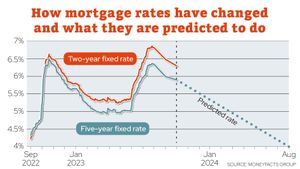Sitting too much is proving to be worse for your heart health than previously believed, even for those who diligently work out to counteract the effects. A new study finds links between prolonged sitting and an increased risk of heart disease, underlining the need for more movement throughout the day.
Dr. Ezim Ajufo, the study's lead author and a cardiology fellow at Brigham and Women’s Hospital, underscored the significance of avoiding extended periods at your desk, regardless of your physical activity levels outside of work. "Our findings really highlight the importance of avoiding excess sitting... whether or not you’re physically active," Ajufo said, summarizing the study's conclusions.
The study, published recently in the Journal of the American College of Cardiology, looked at data from nearly 90,000 individuals who wore accelerometers for one week to track their sedentary and active durations. Researchers then analyzed these individuals’ health outcomes years later, including incidents of heart attack, stroke, and heart failure.
Interestingly, this research showed not only the negative impacts of sitting too long but also provided guidance on how much sitting might be excessive. Dr. Ajufo recommended limiting sitting time to no more than 10.6 hours daily. "That’s not a hard and fast threshold, but we think it’s a reasonable first step for guidelines and public health interventions," she stated.
Dr. Keith Diaz, who specializes in behavioral medicine at Columbia University Medical Center, emphasized the study's rigorous methodology. While he wasn't directly involved, he acknowledged the need for more research to pinpoint what constitutes excessive sitting. "There’s definitely room for more studies to clarify the risks and establish clearer guidelines for the amount of sitting considered too much," he explained.
But what exactly makes sitting so detrimental? Dr. Diaz pointed out several factors, primarily the loss of muscle activity which plays a pivotal role in regulating blood sugar and fat levels. If muscles aren't stimulated through movement, these regulatory functions falter, potentially leading to adverse health outcomes.
So, how can those of us who typically find ourselves chained to our desks break out of this unhealthy pattern? Experts advocate for integrating more movement throughout the day. A standing desk might not be the ultimate solution; simply transitioning from sitting to standing without movement doesn’t activate the necessary muscles. Instead, Dr. Diaz's advice includes taking short walks during breaks, opting for standing during phone calls, or even taking meetings on the move.
"Setting frequent reminders to stand or walk can drastically help too," he encouraged. Small changes can accumulate to big health benefits; for example, walking for just five minutes every half hour could greatly mitigate the risk posed by long periods of inactivity. Other strategies include incorporating stretches and mini workouts during the day, such as calf raises, bodyweight squats, or even desk push-ups.
Research suggests the risk associated with sedentary behavior can’t simply be countered by engaging in routine exercise when the day ends. Dr. Ajufo warns of the illusion some might harbor—that working out for 30 minutes after sitting for the remaining 12 hours can fulfill one’s health needs. “Moderate to intense physical activity is beneficial, but it can’t neutralize the harmful effects of sitting,” she affirmed.
Yes, you read it right—exercising is undeniably beneficial, but it won’t fully offset the detrimental effects of prolonged sitting. So, health experts advise spreading activity throughout the day rather than condensing it all at the end of the workday.
Interestingly, this issue doesn't just affect adults working desk jobs; it casts wider shadows across all ages. For children and young adults glued to devices for entertainment or learning, experts urge families to instill healthy habits of movement within their daily routines. Family activities like walks, bike rides, or trips to the park become invaluable.
Because of its extensive reach, it's imperative to raise public awareness about the repercussions of sedentary living. Investing time and energy to cultivate more movement can not only contribute to individual health but can also usher long-term benefits for communities as a whole. "Movement should become part of daily life; position it as equally important as any task on your to-do list," concluded Dr. Ajufo.
This might sound like just another task, but recognizing and implementing these adjustments can lead significantly to enhanced heart health and overall well-being, transforming our health legacy.
So, next time you find yourself slipping onto the sofa or glued to your office chair, think twice. Stand up, stretch, go for a quick walk—your heart will thank you.



